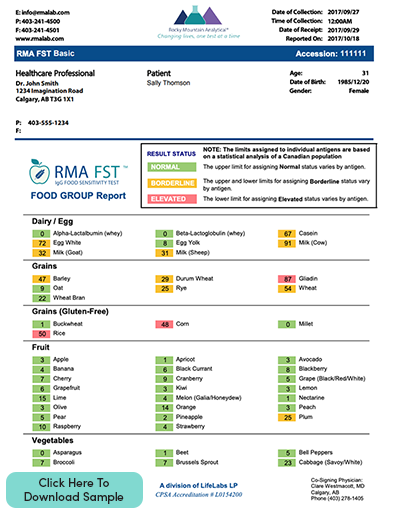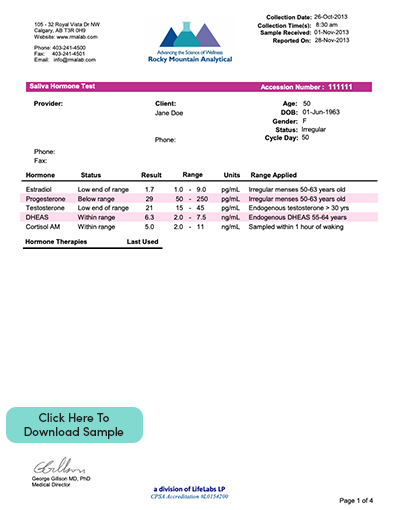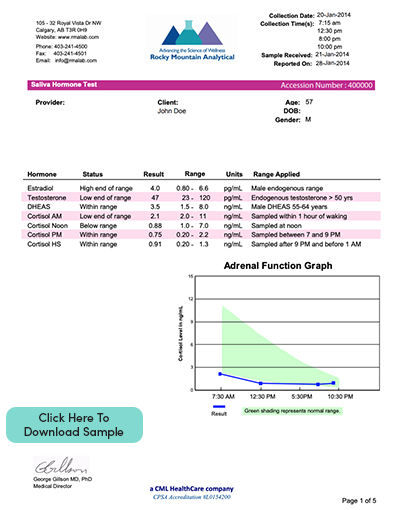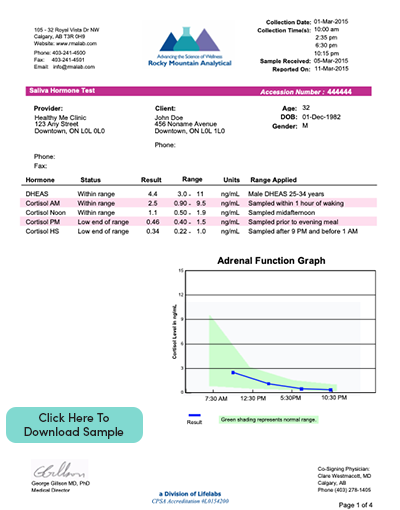- ABOUT US
- SERVICES
- TREATMENTS
- WEIGHT LOSS
- AESTHETICS
- Acne Solutions
- Neuromodulators
- Dermal Fillers
- Facials/Leg Veins
- Scar Revisions
- Sculptra
- IPL Photofacial
- Microneedling
- Microblading
- Platelet Rich Plasma (PRP)
- Mesotherapy/Lipodissolve
-
Fat Reduction»
- Laser Hair Removal
-
Facial Contouring»
- Lip Neutralization
- Lip Tattoo
- Latisse
- Alumier MD
- Zo Skin Health
- IV THERAPY
- BOOK NOW
Labs
Food Sensitivity Testing

Allergic reactions to environmental agents and food occur when your immune system gets triggered, resulting in a release of antibodies. The two most commonly produced antibodies are immunoglobulin G (IgG) and immunoglobulin E (IgE). The tests offered vary by the number and type of foods listed on the panel and the correlating immune responses your body mounts. The need for each specialized test depends on the symptoms you are experiencing and the severity of those symptoms. All of these aspects can be gladly discussed to find an allergy test that works for your needs and health concerns.
IgG Reactions
IgG reactions tend to occur gradually over a period of time, from hours to days. Due to this delay, it is often more challenging to pin down the exact allergen. Moreover, the effects of the IgG reactions can become cumulative over time and contribute to various other health concerns and symptoms. IgG allergy testing is a valuable tool when symptoms and complaints reflect discomfort or inflammation, and they are not being adequately addressed by other means. Testing for IgG food allergies can be quickly performed in the clinic with a simple finger prick to obtain a small blood sample. The sample is then analyzed at a lab, and results are obtained within a few weeks. It is important to eat a wide variety of foods, especially those you find problematic, a week prior to taking this test in order for allergen-antibody complexes to form against foods being tested.
IgE Reactions
IgE reactions tend to occur more quickly once exposed to the allergen, therefore making it clearer and easier to diagnose. Anaphylaxis, hives, or difficulty breathing are all examples of this type of allergic reaction. These reactions typically involve the respiratory system, skin and digestive system with obvious symptoms.
What is the difference between a food sensitivity and a food allergy?
An allergy test may not reflect a mounted immune response to a food that causes an individual a known reaction when ingested. In this case, the results may be due to an intolerance or sensitivity. For example, lactose intolerance is due to a deficiency in the lactase enzyme rather than an allergic antibody mediated reaction. Gluten intolerance is another common example in which an individual may experience a reaction to gluten, although the 'celiac' test was negative. Lowered levels of stomach acid or digestive enzymes can also contribute to many food intolerances.
Management of most allergies and intolerances is done through clinical nutrition, supplements and botanical medicine.
Hormone Testing

Hormones are tiny chemical messengers that the endocrine system secretes through numerous complicated pathways in your body. They play a role in your body to signal cells to ultimately promote or inhibit various hormone levels. Key hormones have been identified, researched and are now well understood and recognized for their role in metabolism, stress response, mood, sex drive, menstruation, menopause, fertility and pregnancy.
You may need to look at balancing your hormones if you experience any of the following:
Females:
- Irregular periods;
- Hot flashes;
- Mood changes;
- Insomnia & fatigue;
- Changes in libido;
- Infertility;
- Migraines;
- PCOS;
- Fibroids & cysts;
- Endometriosis.
- Mood disturbances;
- Breast enlargement;
- Weight gain;
- Prostate concerns;
- Erectile dysfunction;
- Changes in libido.

Males:
Blood and salivary hormone testing are two common ways of measuring hormonal imbalances for both men and women. In the body, hormones travel through the bloodstream supplying all the glands. The hormones are thus able to pass into the saliva through the salivary glands and, as a result, reflect the bio-available hormone levels.
Hormone Panel tests includes the following options:
- Male Hormone Panel: Cortisol, DHEA-S, Estradiol, Testosterone
- Female Hormone Panel: Cortisol, DHEA-S, Estradiol, Progesterone, Testosterone
Exogenous Hormonal Influences: Exogenous, or environmental 'xeno-estrogens,' play a major role in the hormonal imbalances evident in the population today. Increased risk of breast cancer, earlier ages of first menarche, fibroids, endometriosis, decreased sperm counts, and males developing adiposity in the breast and abdominal area are all ways in which the environmental 'xeno-estrogens' are affecting human health. Xeno-estrogen is one amongst various chemicals in our environment that mimics the effects of hormones. Education regarding risks associated, detoxification programs, and lifestyle modifications are important ways to minimize our exposure and the damaging effects that these chemicals have on our body.
Celiac Testing
Celiac disease is an auto-immune reaction to gluten and gluten-like proteins that are found in many common grains and wheat products. Gluten exposure can cause an immune reaction within the body that ultimately damages and flattens the innermost villi of the small intestine. When villi become flattened, the absorption of proper nutrients within the small intestine is hindered. This eventually leads to malabsorption of various vitamins, minerals and amino acids. Chronic malabsorption can further lead to more serious health concerns including growth stunting, iron-deficiency anemia, vitamin B-12 and folic acid deficiency, osteoporosis, chronic fatigue and low energy, among many more conditions.
In today's society there are many additional resources and food options readily available for those diagnosed with celiac disease. Proper lifestyle, dietary changes and minor supplementation can help rebuild and heal the lining of the small intestine and prevent many of the conditions associated with this disease.
Celiac Blood Panel: Includes IgG, IgA and Transglutaminase Antibody testing.
Standard Blood Work Panels
Medical testing is a valuable resource to help aid in assessments, diagnoses and treatment protocols. Common blood testing may include: CBC, iron or ferritin, thyroid panel, lipids or cholesterol panel, vitamin B-12, vitamin D, fasting blood sugar, liver enzyme or kidney function levels.
Adrenal Function Panel

This salivary lab test is a means by which your body's ability to cope with stress is measured. When your body is put under a state of stress, it produces the hormone cortisol. The body typically goes through three stages during periods of extreme and chronic stress: alarm, resistance and exhaustion. This test is able to accurately assess which stage your body is in, and therefore allows for an individualized treatment program.
Cortisol influences the body in various ways. A person can suffer from cortisol excess, or cortisol deficiency. Differing symptoms allow for this variation to be addressed.
The following conditions indicate cortisol excess:
- Irritability and mood changes;
- Weight gain around the waist;
- High blood pressure;
- Insomnia;
- Osteoporosis.
The following conditions, on the other hand, reflect cortisol deficiency:
- Fatigue;
- Muscle pain and aches;
- Decreased libido;
- Allergies;
- Impaired memory;
- Inability to cope or deal with stress.
Heavy Metal Testing and Environmental Pollutants Profile
A simple urine test helps identify recent exposure to environmental pollutants and heavy metals. Toxic chemicals are found to varying degrees in everything from cosmetic and skin care products to cookware and children’s toys. Chronic exposure to certain pollutants may cause them to accumulate in the body and perhaps contribute to disease.
Symptoms related to environmental pollutants and heavy metals may include:
- Irritation of eyes, nose and throat; skin rashes and other skin irritations;
- Effects on the central nervous system, including impaired thinking and movement;
- Disrupting the function of hormones;
- Headaches, nausea, anxiety or depression;
- Fatigue and drowsiness.
Nutrient Status Testing
Overwhelming scientific evidence confirms that vitamin deficiencies are associated with disease processes and the overall condition of one’s health. Vitamin, mineral and antioxidant deficiencies have been shown to suppress immune function and contribute to chronic disease.
The micronutrient test measures how micronutrients are actually functioning within the white blood cells. Micronutrient testing offers a unique means to scientifically assess the intracellular requirements of micronutrients that play an important role in overall health and wellness.
Vitamins, minerals, antioxidants, amino acids and fatty acids are measured in this blood test and sent off to the lab. Results usually arrive within a few weeks.
Neurotransmitter Testing
Functioning primarily in the Central Nervous System (CNS), neurotransmitters are the brain’s chemical messengers that facilitate communication among the body’s glands, organs and muscles. Numerous clinical studies have shown that inadequate neurotransmitter function has a profound influence on overall health and well-being. In fact, imbalances in certain neurotransmitters are associated with most of the prevalent symptoms and conditions seen today:
- Mood disorders; depression, anxiety;
- Adrenal dysfunction; fatigue, insomnia;
- Loss of mental focus; ADD, ADHD, cognitive fog;
- Addiction and dependency;
- Hormonal imbalances; E2 dominance, E2 deficiency, low androgens;
- Loss of appetite control; insulin resistance.
Identifying and managing neurotransmitter imbalances is facilitated with a noninvasive urinary test. Testing provides a tool to understand each patient’s specific neuroendocrine imbalances, which can be corrected with supplements, hormones, diet, and lifestyle interventions.
SIBO Testing

What is SIBO?
SIBO is short for Small Intestine Bacterial Overgrowth. Normally the small intestine houses a small amount of bacteria, this is due to cleansing intestinal muscular contractions that help flush things past the ileo-cecal valve and into the large intestine (colon). Small Intestine Bacterial Overgrowth occurs when bacteria levels overgrow in part or all of the small intestine where it should not normally be present. This can lead chronic digestive dysfunction and many different symptoms and associated conditions.
How common is SIBO?
SIBO is very common. Recent research has demonstrated that most patients suffering from Irritable Bowel Syndrome (IBS) have SIBO present. It has also been estimated that one in five visits to a walk in clinic are for chronic digestive symptoms typical of IBS.
How is SIBO diagnosed?
Once suspected by your Naturopathic Physician from a careful history, SIBO is confirmed through the Lactulose Breath Test by Quintron. This test measures various gases in the breath that are produced by bacteria in the small intestine. This test is also used to monitor the success of each round of subsequent treatment. Polo Health + Longevity is proud to offer this test with a fast turn around time.
How is SIBO treated?
Once SIBO is confirmed through the Lactulose Breath Test treatment is customized to the patient based on presenting symptoms as well as which overgrowth of bacteria is present. Other things used along the way include intestinal motility support, probiotics, anti-inflammatory and intestinal healing supplements.
Who should be evaluated for SIBO?
If you have been diagnosed with IBS or have chronic digestive symptoms that include: diarrhea, constipation, gas, heartburn, burping, cramping, or bloating you need to be evaluated for SIBO. Also, if you have a previous condition such as: celiac disease, impaired intestinal motility, a history of acute gastrointestinal infections, food poisoning or traveller’s diarrhea, opiate drug use, a high sugar/starch diet or gallbladder removal you also would benefit from a SIBO workup. If you are interested in being evaluated, please schedule an initial consultation with one of our Natuorpathic Physicians at Polo Health + Longevity Centre today!
Polo Health
Polo Health + Longevity Centre
711 Columbia Street
New Westminster, BC V3M 1B1
Located in the Heart of New Westminster, BC
and proudly serving Vancouver and the
entire lower mainland,
T: 604-544-7656
F: 604-544-7657
E: info@polohealth.com
Services & Treatments
- Naturopathic Medicine (N.D.)
- Functional Medicine (M.D.)
- Executive Physicals
- Medical Aesthetics
- Registered Massage Therapy
- Registered Acupuncture
- Integrated Cancer Care
- Compounding Pharmacy
- IV Therapy
- Pain Management
- Chelation Therapy
- Mesotherapy
- Acupuncture
- Bio-Identical Hormone Therapy
- Male Hormone Replacement Therapy
- Labs
- Weight Loss
- Women's Health
- Men's Health
- Pediatrics
- Vitamin B-12 Shots
Cancellation Policy
Your appointment time is reserved just for you. A late CANCELLATION or NO-SHOW leaves an unfilled gap in the practitioner's schedule that could have been filled by another patient in need. As such, we require 24 hours notice for any CANCELLATION or changes to your appointment. Patients who provide less than 24 hours notice, or NO SHOW their appointment, will be charged a CANCELLATION OR NO SHOW fee of $100 to the card on file. We understand that emergencies happen, but we kindly ask for as much notice as possible so we can continue to provide consistent care to all patients.
No other appointment will be booked until this fee is paid.
Appointments are subject to change as per practitioner’s schedule
